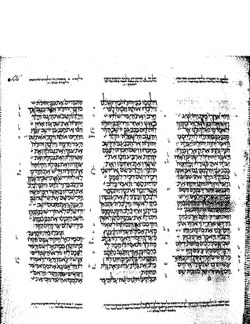| Judges 18 | |
|---|---|
 The pages containing the Book of Judges in Leningrad Codex (1008 CE) | |
| Book | Book of Judges |
| Hebrew Bible part | Nevi'im |
| Order in the Hebrew part | 2 |
| Category | Former Prophets |
| Christian Bible part | Old Testament (Heptateuch) |
| Order in the Christian part | 7 |
Judges 18 is the eighteenth chapter of the Book of Judges in the Old Testament or the Hebrew Bible. [1] According to Jewish tradition the book was attributed to the prophet Samuel, [2] [3] but modern scholars view it as part of the Deuteronomistic History, which spans in the books of Deuteronomy to 2 Kings, attributed to nationalistic and devotedly Yahwistic writers during the time of the reformer Judean king Josiah in 7th century BCE. [3] [4] This chapter records the activities of the tribe of Dan, [5] and belongs to a section comprising Judges 17 to 21. [6]
Contents
- Text
- Textual witnesses
- Analysis
- Double Introduction and Double Conclusion
- The Bethlehem Trilogy
- The founding story of Dan
- The Danite spies (18:1–13)
- Verse 1
- Verse 12
- The Danites take Micah's idols and the Levites with them (18:14–26)
- The Danites settle in Laish (18:27–31)
- Verse 30
- See also
- Notes
- References
- Sources
- External links

